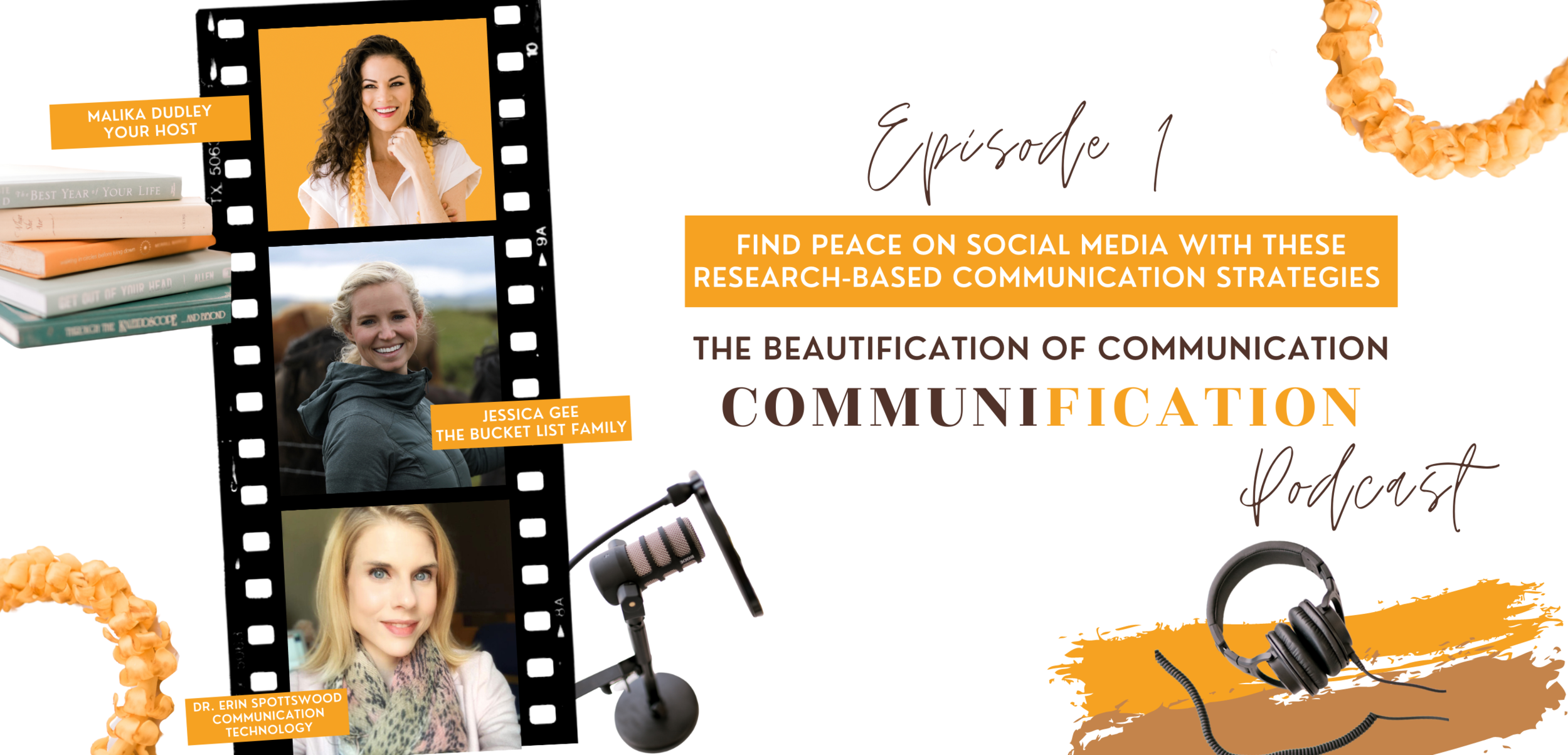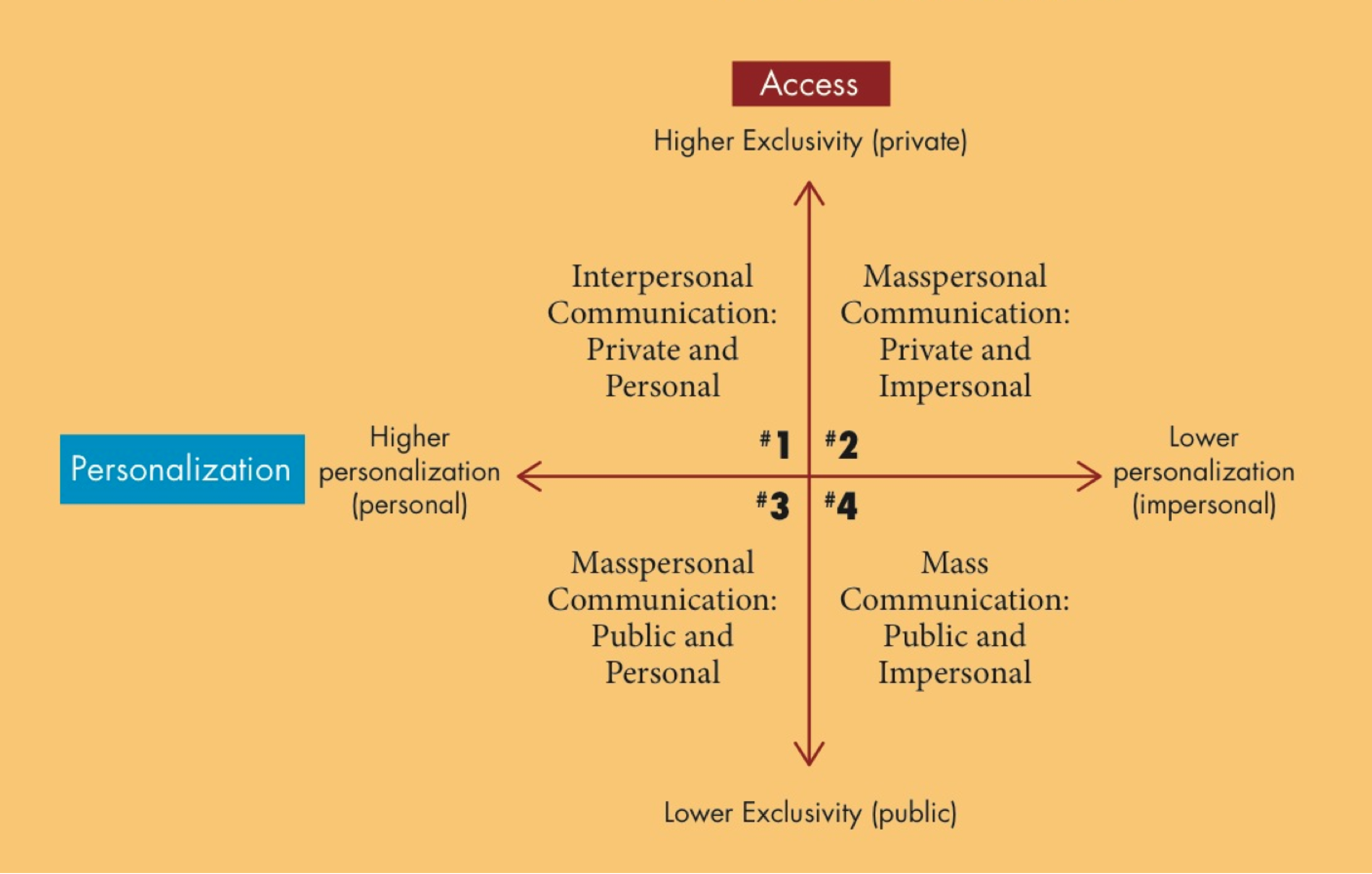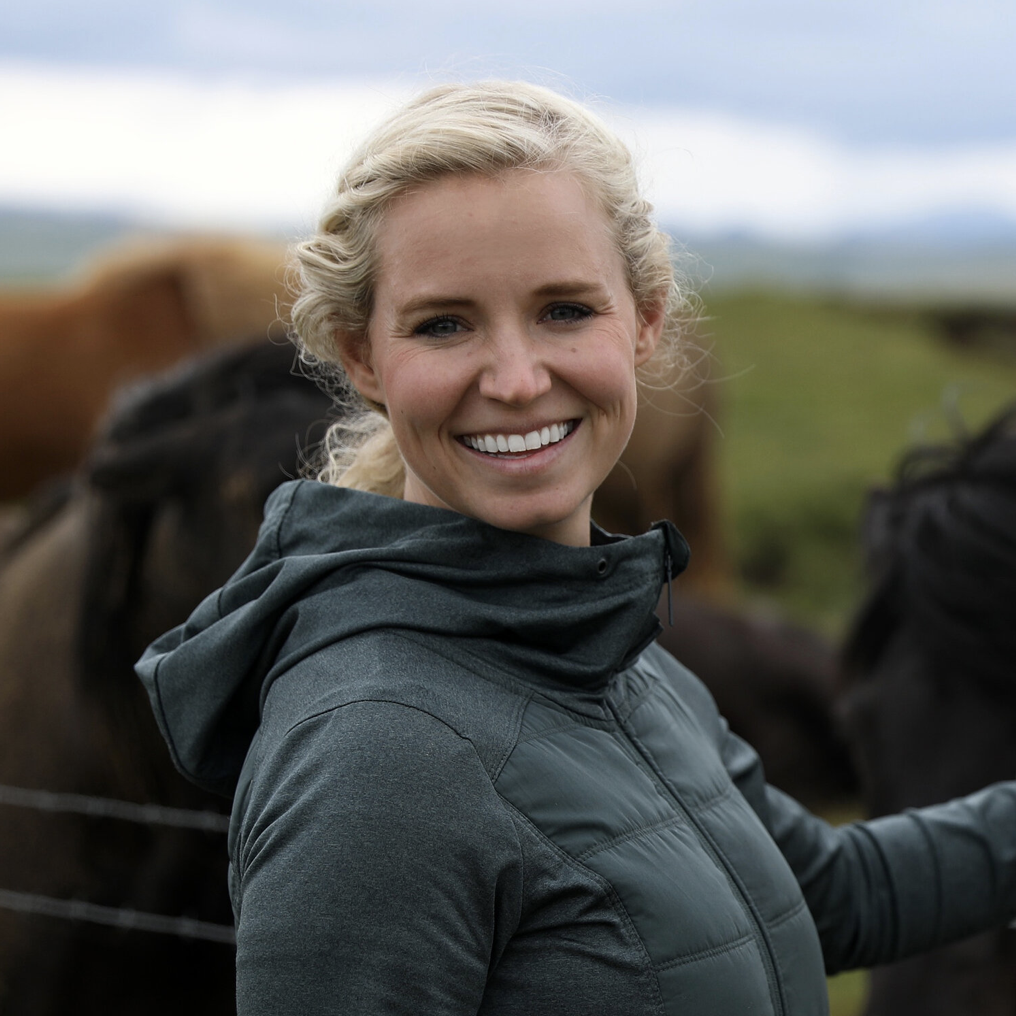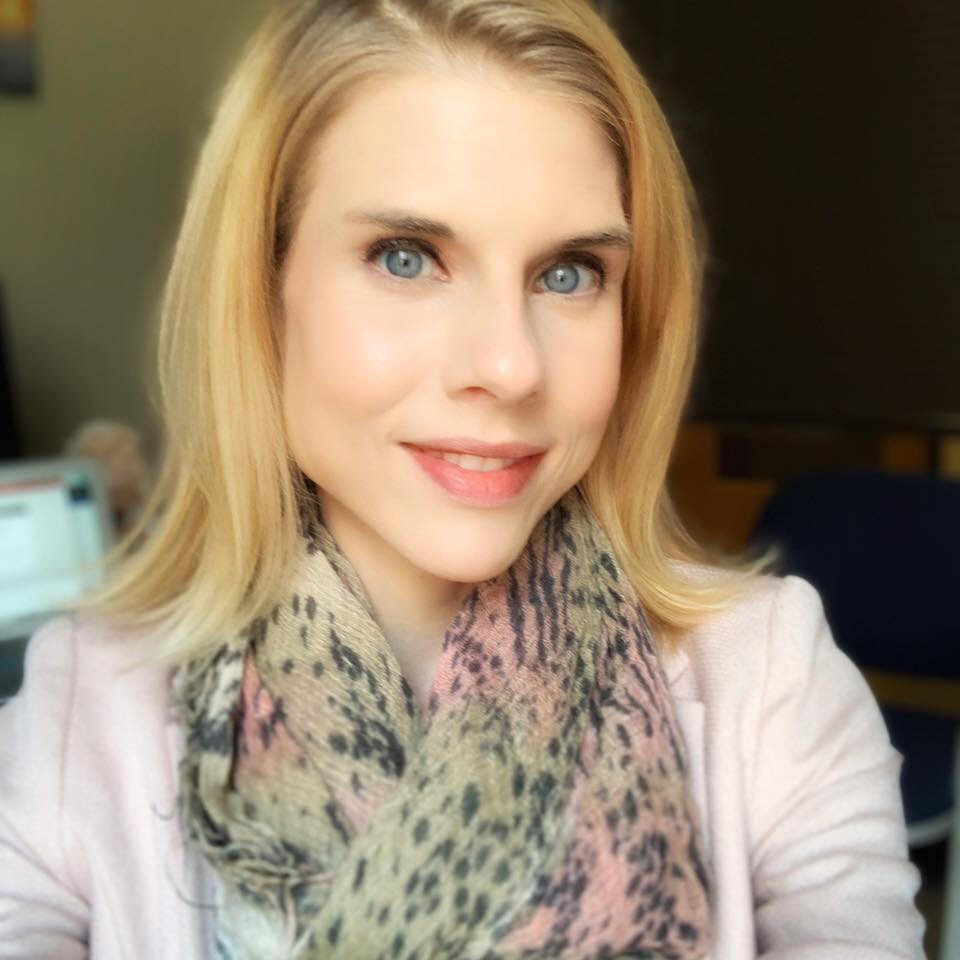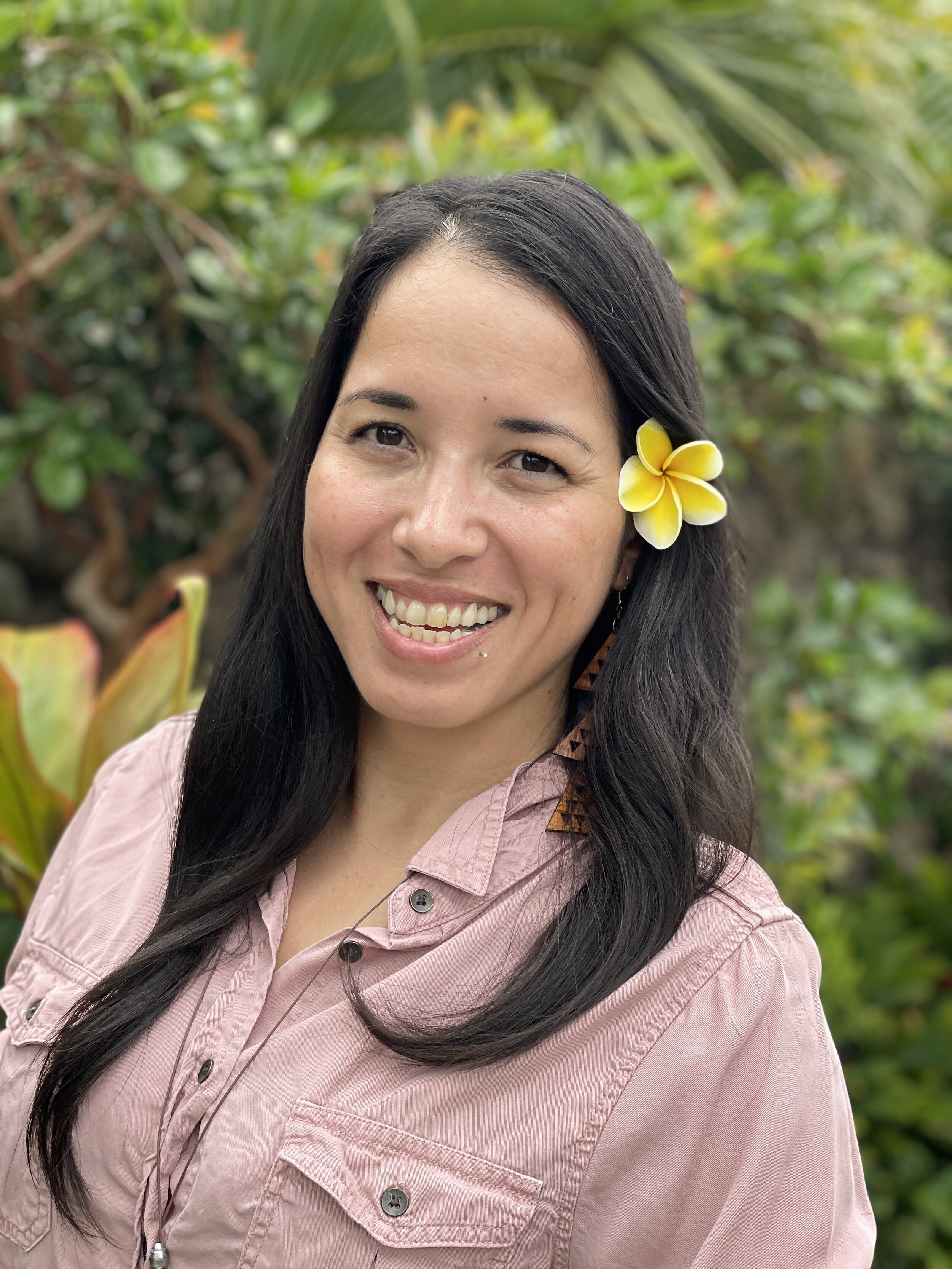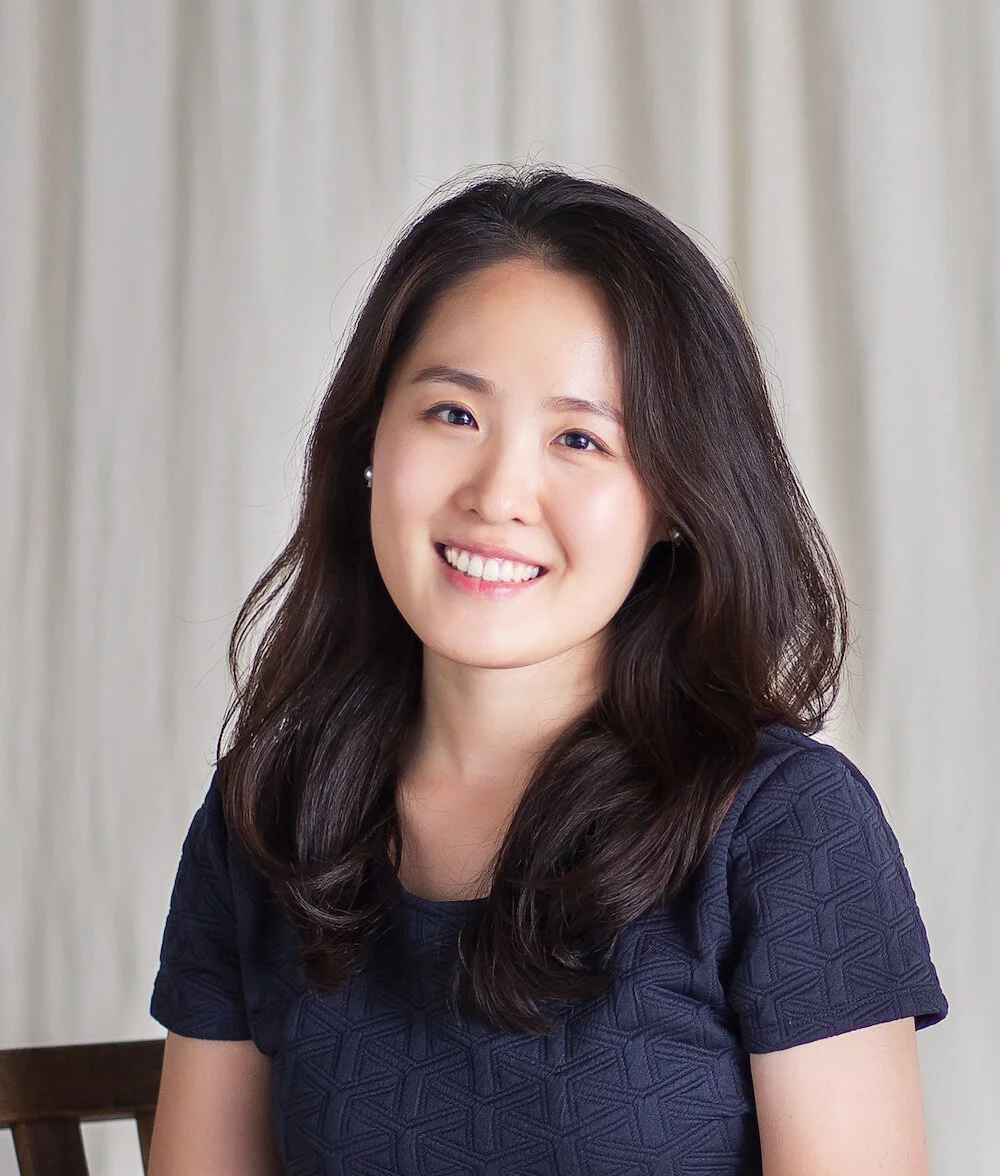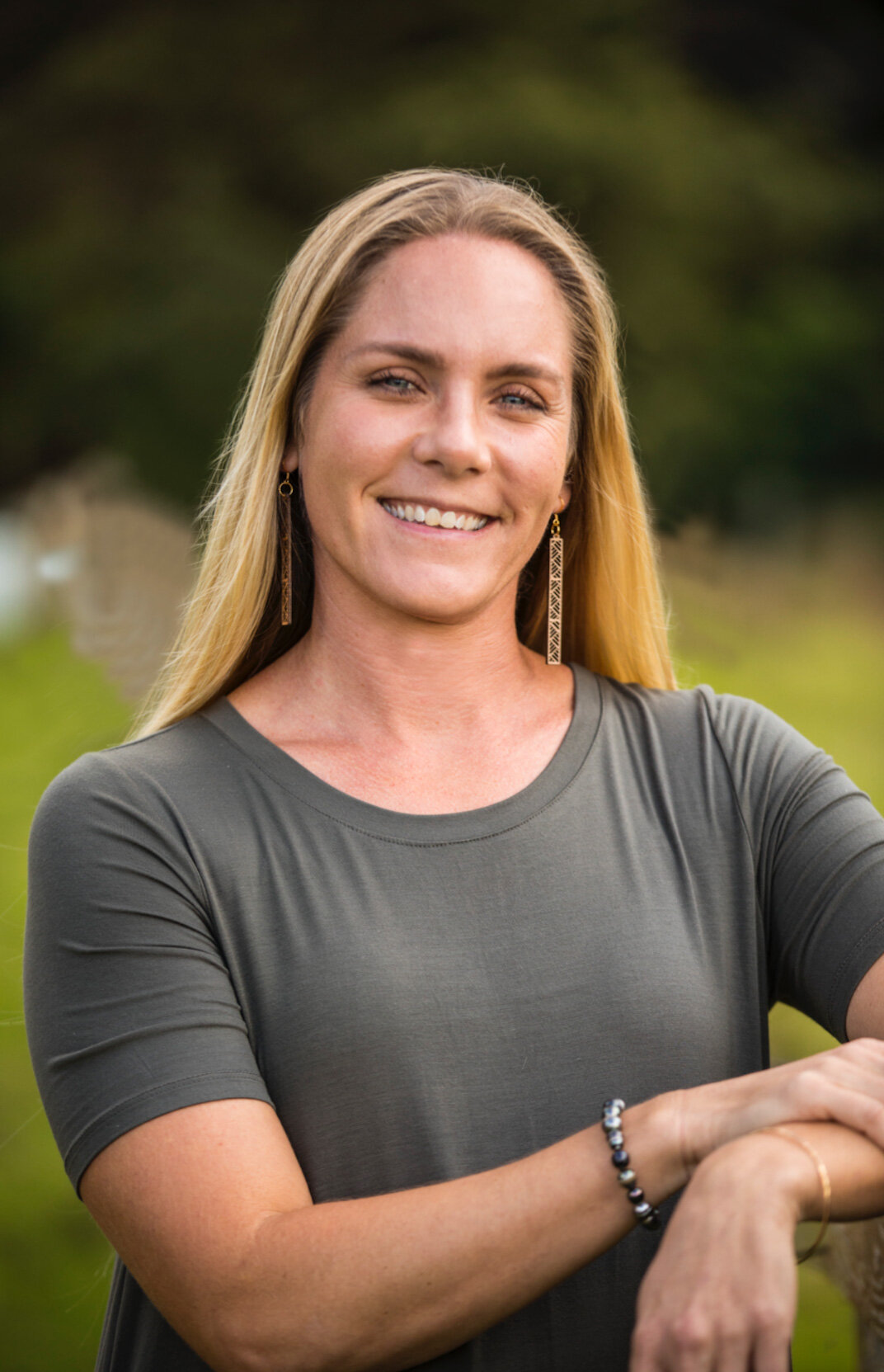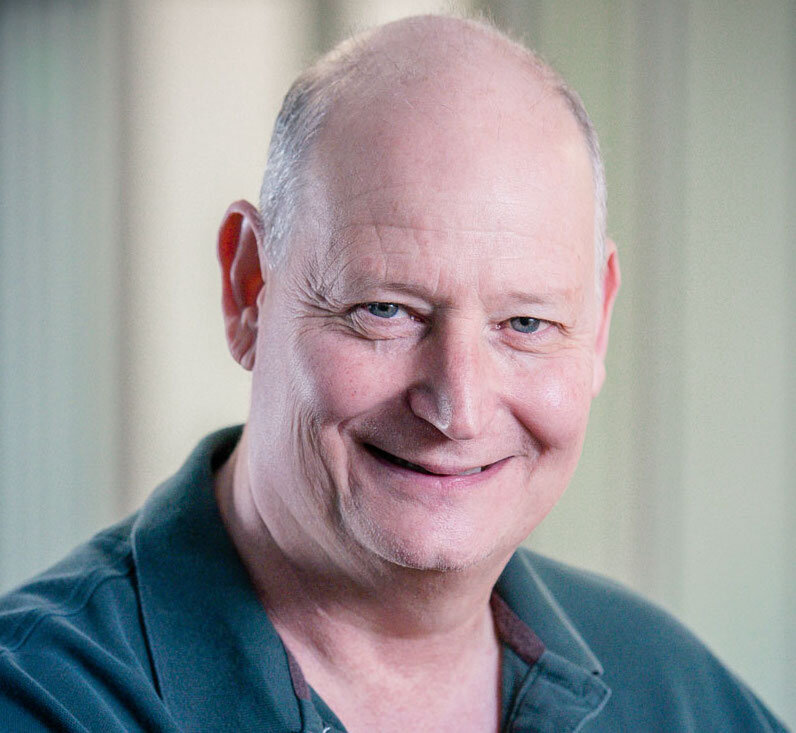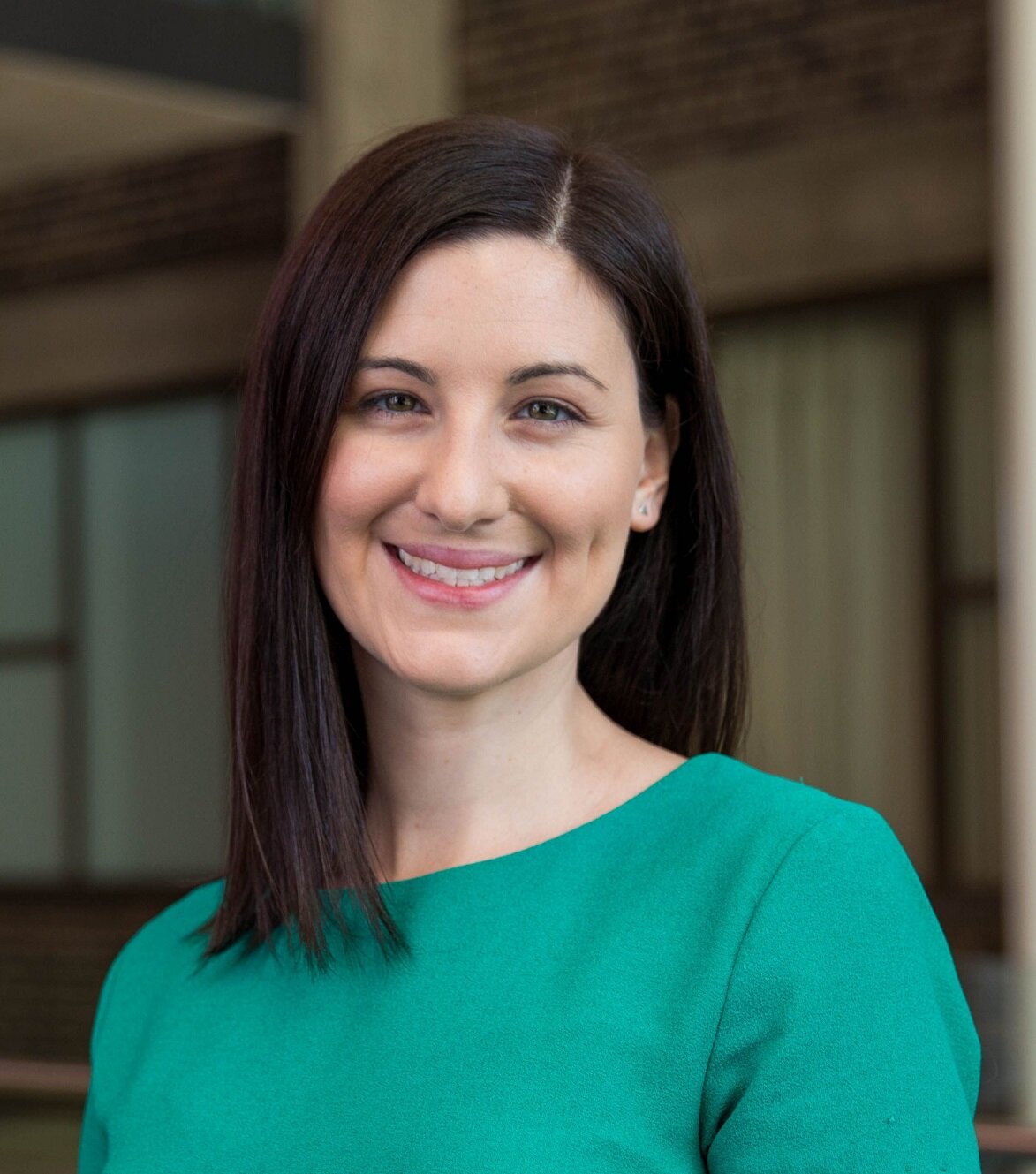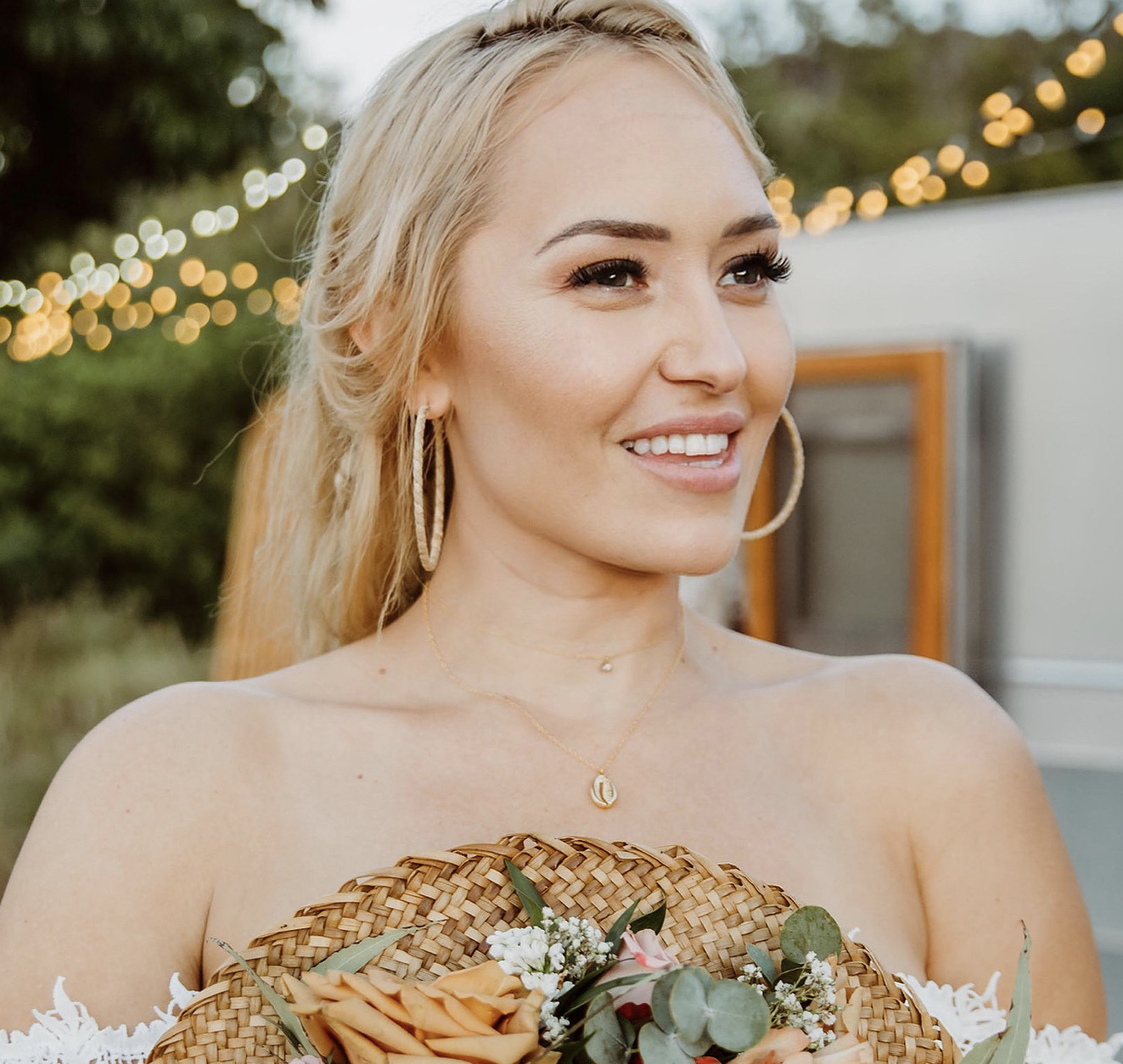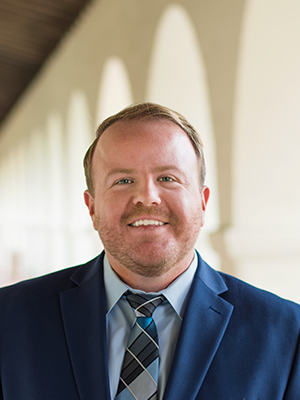Ep. 1: The Bucket List Family’s Jessica Gee + Dr. Erin Spottswood - Find peace on social media with these research-based communication strategies
Below you will find the show notes for “Episode 1” of the Communification Podcast.
Tap the down arrow on the player below to download this episode. Mahalo for listening! Welcome to the ‘ohana!
The goal of this podcast is to expose us to communication research so that we might gain research-based communication tools to help with the beautification of our communication. This episode was the perfect episode to kick of Season 1 of the Communification Podcast. Dr. Erin Spottswood teaches us about how social media is impacting us, and what we can do to counteract it’s negative impacts. Then, I have mega influencer The Bucket List Family’s Jessica Gee on the show to breakdown the research and what we learned by reflecting on our own personal experiences.
Main takeaways
How knowledge of the positivity bias and the hyperperception model can help with our understanding of social media’s impacts
People make “hyperperceptions” about what they see online. The less they know, the farther from reality their perceptions might get.
How to break free of the hyperperception rabbit hole
What you need to know about why people present their best selves online
Are nonverbal cues helpful in determining someone’s online authenticity/honesty?
We can be our authentic selves in many different ways.
Balancing a brand image and a personal image - you can be your authentic “work self”
Give ourselves and others grace, don’t read the comments, realize that you can never 100% satisfy a goal in a persistent space
Time codes
GUEST: Dr. Erin Spottswood
[00:07:55] WHY DR. SPOTTSWOOD IS SO PASSIONATE ABOUT THIS FIELD
[00:11:00] WHAT IS MASSPERSONAL COMMUNICATION?
[00:14:06] AN ILLUSTRATION OF THE HYPERPERCEPTION MODEL
[00:18:25] THE NORMS OF TECHNOLOGY USE + THE POSITIVITY BIAS
[00:19:09] HYPERPERCEPTIONS + ROMANTIC JEALOUSY
[00:20:27] WHY SOCIAL MEDIA GIVES US #FOMO
[00:23:14] YOU’RE ONLY GETTING A “SLICE OF THE REALITY PIE”
[00:24:15] THE STRUGGLE TO BALANCE OUR BRANDED “WORK SELVES” WITH OUR AUTHENTIC “PERSONAL SELVES”
[00:27:55] LISTENER QUESTION FROM JAMIE R. ON O’AHU:
HOW DO WE KNOW IT’S GENUINE IF WE CAN’T SEE NONVERBAL CUES?
[00:30:38] WHY ONLINE COMMUNICATION MIGHT HELP US TO BETTER DETERMINE THE TRUTH AND AUTHENTICITY OF A MESSAGE
[00:32:43] DR. SPOTTSWOOD’S RESEARCH-BASED STRATEGIES FOR HOW TO DEAL WITH THE POSITIVITY BIAS AND HYPERPERCEPTIONS
GUEST: Jessica Gee, The Bucket List Family
[00:38:38] POSTING OUR BEST MOMENTS ISN’T JUST HUMAN NATURE, IT’S LOGISTICAL
[00:40:09] THE STRUGGLE IS REAL, JESSICA TALKS ABOUT HOW MEDIA HAS LED TO FEELINGS OF DEPRESSION + ANXIETY
[00:43:32] JESSICA’S STRATEGY FOR CREATING AND CONSUMING MEDIA INCLUDES THINKING ABOUT HOW SHE CAN GIVE BACK
[00:44:55] LISTENER QUESTION FROM THALIA A. ON O’AHU:
HOW DO YOU SET AND MAINTAIN HEALTHY BOUNDARIES FOR CONSUMING SOCIAL MEDIA?
[00:47:41] OUR MAIN TAKEAWAY: HAVING A BRAND IMAGE, DOES NOT MEAN YOU ARE INAUTHENTIC
[00:50:49] WE GET STUCK IN THE ECHO CHAMBER BECAUSE OF THE ALGORITHMS
[00:52:17] JESSICA’S PERSONAL ADVICE ON HOW TO NAVIGATE THE UPS AND DOWNS OF SOCIAL MEDIA
Dr. Erin Spottswood bio
Dr. Spottwood’s research interests focus on 1) how people use communication technology to develop and build their personal relationships, 2) how digital media impacts people personally and professionally, and 3) how usability issues impact educational and organizational success. As humans become increasingly dependent on communication technology and digital tools, it is important that research uncovers how people try to use these tools to accomplish their goals and come to know the world around them. Dr. Spottswood collaborates with academics and industry professionals to uncover how these technologies and tools can be used and designed to help people connect, learn, and work.
More background on Dr. Spottswood
The Bucket List Family / Jessica Gee bio
The Bucket List Family is an ohana (family) of five family travel journalists. Jessica and Garrett Gee, along with their three keiki (children) Dorothy, Manila, and Calihan, have been traveling the world sleighing their bucket list since 2015 when they sold everything they had and departed on a trip around the world.
Jessica and Garrett met during a service mission in Russia, but it wasn’t until years later that they started dating - while in college. Garrett who had started developing an iPhone app while he was in college (it was called Scan) sold it to Snapchat, and as they say... the rest is history. The Gees are now a part of our Hawaii community - with their home base here - 2020 was a little break from the constant travel - but they are at 85 countries and counting. They have millions of followers on social media and YouTube and a very loyal fan base who they inspire, connect with, and share aloha with on a daily basis.
The Bucket List Family website
Become a “Bucket List Friend”
The Bucket List Family Instagram
The Bucket List Family YouTube
The Bucket List Family Tiktok
The Bucket List Family Facebook
Jessica Gee’s Instagram
EPISODE 1:
Find peace on social media with these research-based strategies
Malika:
Hi, Dr. Spottswood, Thank you for joining us for the premiere episode of the Communification Podcast. I've been reading your research for many years now, I'm so thrilled to get the opportunity to have you on the show. So, welcome!
Dr. Spottswood:
Malika, that is a little bit too much positivity and praise for me, I am just a humble person that's very interested in these topics and likes talking about them with other people who are similarly interested. It's kind of just weird to be in a field where I get to think and research and talk about the very things that seem to occupy so much of our daily lives now, especially during the pandemic when it comes to social media and communication technology. So it's a thrilling time to be in this field. And it's really just a privilege to talk with you. Because if I'm really honest, academics thrive on people getting interested and following up and continuing to build upon the work. And so there isn't like, it's never one and done. It's never like put to rest. It's an ongoing, living, breathing field. Meeting people like you that are just as passionate and interested and engaged as I am. It's just a treat. It's like what better way to spend a Sunday afternoon.
Malika:
Well, I'm so happy that you're here with me. And actually, I want people to know more about you. So why don't we start first with why you are so interested and passionate about this field of computer mediated communication and maybe talk a little bit about your areas of study?
WHY DR. SPOTTSWOOD IS PASSIONATE ABOUT THIS FIELD OF STUDY
Dr. Spottswood:
Sure. Well, I've always been fascinated with communication technology, especially how people connect through computers. I was one of those starting early off on AIM, you know, going into chat rooms. I can still hear AOL dialing up in my parents basement, like in my memory. And I've always just found it to be just a fascinating thing of how and why people use technology to connect because it seemed at face value very, very disparate to what most people seem to value in human connection and communication. But I thought, and I felt, and experienced that sometimes when you're not face to face with the person, you're able to connect and communicate in ways that aren't better or worse, that are just different, and sometimes can be more authentic.
Now, that was a very different communication technology landscape than the one we live in today. And that was one of the reasons why I wanted to pursue this field in particular, because it's always evolving, it's always changing. And it's now seeming to become increasingly the way we interact with others.
“But if we don't take into account the features and affordances of these technologies, we may end up getting into a little bit of self, psychological, or interpersonal or even broader social fallout, or have different types of negative consequences.”
So if anything, I really hope my research helps people pause, helps people kind of assess if what it is they're really perceiving on social media is is reality, because we all know face to face perception is not always reality, you know, we may walk away from a conversation thinking it went one way, they may think it's gone entirely another way. And that's face to face! When you strip out more of the context by having it be mediated, there can be a whole lot more perceptual circus shenanigans that can happen.
And so it's important for people to kind of like take pause, and remember that like, they're only getting one side and a very filtered mediated side of a conversation or of an interaction and to kind of like, if you are really concerned about what it is you're seeing, or what it is you're experiencing on social media, then talk to people that it's also relevant about, that's what I hope people will take away from my research, it's like, you know, technological perception is even further away from reality than they might think. Just talk to people, talk to people about what it is you're feeling and get stuff straightened out. And then in the future, when similar things arise, you won't have the same kind of, you know, mental gymnastics happening.
Malika:
There's so much to unpack.
Dr. Spottswood:
I talk kind of like a, I don't know, 100 miles a minute. And even my students sometimes are like, can you slow it down Doc Spotts?
Malika:
Is that what they call you? Doc Spotts?
Dr. Spottswood:
Some of them do. I love it. I do believe that there does need to be a certain amount of professionalism and decorum that exists in academia and in the classroom especially. But I also want my students to relate to me as a human, and can maybe even also help them become engaged with the class topics. Because learning is fun, and I think it should be.
WHAT IS MASSPERSONAL COMMUNICATION?
Malika:
And that's what this podcast is all about. So let's dive right in. So I think, first, I'll introduce the topic for today. And today's communication topic is quite broad, by design. We hope to dive into specific areas in future episodes. But today, we're just trying to get a general understanding of how social media impacts our communication, and the way we show up in the world. So I wanted to introduce the listeners... Hi, everyone - thanks for joining us... to Patrick O'Sullivan's concept of mass personal communication, let's just go right down to the basics.
So he developed this framework, and it's a chart. So just imagine a cross where one axis is access, so how private or public a message is, and the other axis is personalization. So how personal or impersonal the communication is. So mass communication is in one box because it's impersonal, it's broadcast to the public, to the masses, while interpersonal communication is between a small number of people that share some sort of relationship. So that's placed opposite mass communication. But then you have masspersonal communication that can be both impersonal and private, like a spam message in your email inbox, or DMs. But masspersonal communication can also be personal and public, which describes what we're talking about today when it comes to social media.
So if you're watching on YouTube, you can see the chart but I'll also put the chart in the show notes for those of you that are listening so that you can see it too. So I mean, Doctor Spotts, Doc Spotts. So much has changed over the last 10 to 15 years, we can share things of a personal nature, but it's posted for many people to see, we are communicating something, but we aren't even quite sure which part of that defined audience if you have a private account, or mass audience will be actually receiving this message, or how it will be perceived on the other end and interpreted.
So my question for you is, what does the research say about how people have been navigating social media when it comes to this self presentation and impression management?
Dr. Spottswood:
Sure. So one thing that's unique about a lot of social media technologies is that it has affordances, such as identifiability, which is the extent to which what a person posts online is linkable and traceable back to their offline persona. So, you know, who they are according to their birth certificate, their workplace, their corporal self. So that's one thing a lot of social media provide is that and then accessibility and persistence. So the extent to which what you post on social media can be accessible by many people outside of the two people that are interacting in a particular platform, and that it persists there, right, that long after that interaction is there, it stays there for a while after. And of course, not all social media have that affordance like for example, Snapchat, right doesn't have the persistence factor doesn't really have the identifiability factor. Whereas Facebook, Instagram and Twitter have more of these affordances - they have identifiability, accessibility, and persistence.
And when you have that, and then couple that with like this idea and concept of masspersonal communication, you can have two people seemingly have a very interpersonal intimate conversation. But that's there for everyone to see, and appraise and make perception, sometimes even you might call “hyper-perceptions” of the interactions that they are witnessing. So I've actually the past several years, I've dedicated my research agenda along with a colleague of mine from Western Illinois University, Dr. Christopher Carpenter, a tenured professor there, we develop something called the Hyperperception Model, which is a, it's an extension of the Hyperpersonal Model, where, you know, in the past, a lot of communication technologies, they didn't have these identifiability sorts of, well, they did have accessibility and persistence, but not necessarily so much in terms of identifiability.
“So you could witness two people having an intimate conversation online, but not necessarily be able so easily to link that to offline personas. Social media, though, makes that way different. And today, the norms of communication technology use seems to suggest that we do a lot more of OBSERVING other people's interactions rather than ACTUALLY INTERACTING on the social media.”
So what does that mean? You are doing a whole lot of observing people that you know, interact with other people that you know, and other people you don't know as well. And this can lead to a variety of different perceptual effects. Sometimes that can result in negative consequences to the observer, such as romantic jealousy, loneliness, anxiety, and depression. And how do you help users take a step back? How do we help everyday people remember that digital perception is not actual corporal reality, like how can you get people to get back on track with that?
AN ILLUSTRATION OF THE HYPERPERCEPTION MODEL
Dr. Spottswood:
So first, you have to kind of establish that the phenomenon is there. And that's what the Hyperperception Model is all about - observing other people's intimate interactions. For example, let's say you have Silvia. She's in a relationship with Marco. Silvia, one day goes on to Facebook is just scrolling around like we do, right, waiting for the next thing to happen. She's scrolling through her Facebook and she sees Marco in a post. She sees that a person named Tina, who she's never met before, posts a picture of her, several others, but Marco is also in the picture and then there's also maybe a title for the photo, "Had the best time ever. This was so much fun. Can't wait to meet and do this with all of you again!" But again because she doesn't know Tina right? She has no way... what is, what is going on what is what is happening?? It doesn't seem affiliated with Marco's work... like Sylvia is very confused.
And human beings have always been very interested in the relationships and interactions of those we're close to. Like when you think about the bulk of your conversations with the people you're close to. It's like the interactions they're having with other people, right? How they're doing with other people. No wonder that like we do this on social media when these sorts of things pop up in our feeds.
And so maybe then also Sylvia scrolls down and sees the comments that Marco has hearted the post. "Uh oh." And then also maybe left a comment like, "Had the best time ever. Can't wait blah, blah, blah" you know now Silvia is like, "Ah, what is that? Who, what, who is this??" Marco is the observed sender, because he's the person that Silvia is really interested in appraising his interactions on social media, Tina is this unknown receiver and the less you know this observed receiver, the more likely you'll develop hyperperceptions because you don't have any way to contextualize the interactions you're seeing. If for example, Silvia knew that Tina was Marco's cousin, not as worried. They were just at a family thing like but if you don't know what the situation is, the brain is more likely to like go "uhhhhhh." We do mate-guarding right, we want to fend off people that might try and interfere in our relationships in any way, shape, or form where we're worried of rivals. Yeah, so that's what the model is about.
THE NORMS OF TECHNOLOGY USE + THE POSITIVITY BIAS
And there's also certain aspects of social media too like the norms of these technologies. I've even done research about the positivity bias on social media and how we just are inclined to only put our best face forward on social media. And that's not uncommon in everyday life. It's like, who knows what we will look like when we emerge from our caves after the pandemic.
But normally, you know, when you go to the office, when you go and meet up with people outside, it's not uncommon to like put on an outfit you feel good in and to, you know, to groom yourself the way that you feel most attractive. So it makes sense that the stuff we put on social media is emblematic of that too of how we want to be perceived in our best light. And that we'll post things that make us seem positive, attractive, popular, interesting, fun.
But because of the staticness of this and the filtering out of unflattering content, again, when you get a social media side of someone, you're only getting their selectively edited self on social media, given its persistence affordance and so you only see this observed receivers best self. And so then the comparisons too, you're more likely to compare them higher to you because you're - I mean, Sylvia - is probably observing this maybe in her sweats at home. Oh, no. And now she's seeing like these curated edited photos of Tina and only what she's willing to be allowed to the general public, this might ring a whole lot of alarm bells. Right.
And so we've done a variety of work on this now. We published a whole bunch, if you Google Scholar Spottswood and Carpenter, and hyperperception, I can like send you some links, maybe to some papers if that would help?
Malika:
Yes, for sure. We'll put those in our show notes.
HYPERPERCEPTIONS + ROMANTIC JEALOUSY
Dr. Spottswood:
Yeah, we've mostly been looking at this in terms of romantic jealousy, because it explains, one, why social media lends to that so far, that work has been for the most part atheoretical now we have a model that predicts and explains why this happens. Like one of the coolest findings we had in return was in some of our open-ended questions the feedback we got was very interesting.
We found that when there was just an authentic conversation about the partners or observers concerns, it opened up new lines of communication in relationship.
It fostered trust, understanding, and empathy, and actually brought people closer like I'd assume talking about these sorts of hyperperceptions would lead to friction in a relationship. But I mean, obviously, there were some times where that was true. But more often than not, we saw the opposite. And that's actually covered in a chapter that Carpenter and I worked on together. And it's an a book that I can link to as well.
WHY SOCIAL MEDIA GIVES US #FOMO
Malika:
Wow. Well, on a broader scale… so we're talking about relationships, but I know that I've experienced this. I heard it from a lot of the listeners that I polled before doing this interview, that they are concerned about being bombarded with perfect images of people's lives. Can you talk a little more about what the research is saying of how that's impacting us? I know there's some research about passive consumption of social media and how that impacts us. And you talked a little bit about comparisons.
Dr. Spottswood:
Yeah, well, you're right that there is a fair amount of work that says passive social media use can lead to a variety of negative or detrimental psychological outcomes like anxiety, loneliness and depression. And in part, I think it also is because of this hyperperceptual process, but instead of in terms of just like romantic processes, it's like looking at your friends doing stuff or interacting without you that can lead to where am I in my social circle?
Malika:
FOMO!
Dr. Spottswood:
Yeah, exactly. Why aren't people including me in these online and offline engagements, interactions, events, etc? It leads people to question how their individual relationships stand, how they are ranked in their social circle. And it's often what we forget is just oftentimes things it's not always so intentional, like we think it is, right. It's not like anyone left us out necessarily. There are a variety of reasons why something happened and if you weren't included, but our brains don't work that way. We have so many different types of biases that lead us to have these sorts of questions, concerns and reservations, and then hyperperception processes.
And so if you switch out from the observed receiver, so imagine Silvia now is no longer thinking about Marco. Silvia is now looking at her close friends, Lily, Trixie, and May like she has these very, very close friends. And she sees them doing stuff and posting about stuff on social media maybe a few times without her. And she may be wondering, like, well, maybe I'm not as close to these people as I thought, maybe they're trying to kind of push me out of the friend group and it might make her have all these kind of similar kind of like social worries that are similar but still different from like, romantic jealousy worries. And really what people sometimes forget is, so for example, maybe Silvia sees them posting about a recent camping trip, and she suddenly might become like, "Oh, no, why didn't no one tell me why wasn’t I included? Why bla bla bla, bla bla." And she immediately goes down this spiral of fear, when in reality, maybe no one invited her because a long time ago, she told all of them, or maybe one of them, that she hates camping, and your brain just forgets that right?
Your brain just, because we're social creatures, and we hate to feel like we're not included, at least not invited about things. But then we also forget that people often are very mindful of their time and resources and won't waste asking someone about something if they believe that answer is already going to be a no, we only have so much time and energy in the day.
YOU’RE ONLY GETTING A “SLICE OF THE REALITY PIE”
And so it's trying to remember that what people post on social media is not 100% reality, it's part of reality. And if it gives you concern, then talk to the people about your concerns. Don't just let your brain go into like hyper drive hyperperception mode, just talk to people and remember that you're only getting a slice of the reality pie if that. There's so much left out. I mean, it's not all fake, but it is curated, it is edited.
Because when we believe there's a static representation of ourselves, and our relationships somewhere that anyone can visit at any time, given its accessibility and persistence. We want to make sure that what we share is going to be positively appraised by whoever stumbles upon it. Like we want to be perceived as good. But that makes sense. We just have to remember that everyone else is doing that, too. Don't just compare your offline self to other people's online selves.
Then maybe even engage in some other fun exercises, like, what do they look like, at the end of the day, after a long, hard day, when everything's washed off, or first thing in the morning?
THE STRUGGLE TO BALANCE OUR BRANDED “WORK SELVES” WITH OUR AUTHENTIC “PERSONAL SELVES”
Malika:
Yeah, you know, what that made me think of? I had some other listeners Tara B., Melissa, and Keala, they brought up that they struggle because they have social media accounts that are not just personal, they either have a business and a personal or they have one where they do both. A brand has an image, right? Like it's a very curated image. And we have been talking about how, personally we are curating our content as well. But we're trying to balance being authentic. And so "ouuuuuu", like that juxtaposition between, okay, well, I need to keep this brand image up. But also, I want to be true to myself. So what do I do?
Dr. Spottswood:
Well, I think it's not asking too much of yourself in either capacity. Because when you are at work or doing things for work, you are your authentic work self. That is a part of you. I think sometimes people have a hard time realizing it's okay to compartmentalize the different aspects of their life, especially when it comes to technology where the blending and blurring of all these boundaries seems to be impossible.
It's okay to sometimes present something that's just who and what you do for professional reasons, and that is a part of you. That's not inauthentic. It's just what you're doing in that particular instance using that platform for your brand or business. Just because something is highly curated or edited doesn't mean it's bad or wrong.
I mean, you can't control how other people will interact or engage or perceive your content. So don't worry about that. That's all good and fine. Don't ask too much of yourself about being authentic. I mean, sometimes I think authenticity, or trying to be can almost be toxic in and of itself. Because you know, when I, for example, when I give a presentation for work, and a lot of people are there, or even like for this podcast, now that I'm being recorded, I still think about what I'm going to say, practice, prepare, make sure I am relatively put together because it's being recorded. And this is still me, this is very authentically me. But it's like what I'm doing for the purposes of my work. And my brand as an expert in this space that's aligned with a lot of my personal and professional goals. So just be okay with achieving a goal in of the moment. And then moving on to the next after the fact.
Malika:
I love that. Because my mind goes like a million miles a minute and I start thinking, oh, gosh, well, I have to be authentic. Okay. So now, and I read this actually, in some research recently, Oh, I can't remember the researchers, but they're in Vienna, at the University of Vienna. And they research Journalism and Communication. And so they were talking about "authenticity labor." And that just got me thinking, and I'm going, Oh, my gosh, it's so true. I'm trying so hard to be authentic, that now it is a labor. And so then you get meta and you go, because I'm trying to be authentic, does that mean I'm not authentic anymore?
Dr. Spottswood:
We all put way too much pressure on ourselves, given the affordances and features of these technologies and just realize you're never going to 100% satisfy any goal in a persistent space like this for a variety of reasons. Goals, change, times change, norms change. So just do the best you can in that moment and be gracious and kind to yourself. Don't read the don't read the comments.
Malika:
I love that. Well, okay, I do have a listener that wanted to weigh in and ask you a question.
LISTENER QUESTION FROM JAMIE R. ON O’AHU:
HOW DO WE KNOW IT’S GENUINE IF WE CAN’T SEE NONVERBAL CUES?
Jamie R.:
Hi, Malika and Dr. Spottswood. This is Jamie. Thanks for having me on your podcast. My question is how can you tell if online communication is genuine or authentic without seeing some of the cues that you might see in in-person or face-to-face interactions?
Malika:
Jamie's asking about those nonverbal cues being filtered out in online communications. What do you think?
Dr. Spottswood:
Hmm. Well, I think to start off, there's a fallacy in assuming that nonverbal cues actually help you determine the veracity of another person statement. People often have these fallacies, or false thoughts, because a lot of media and popular culture makes us think if they're shifty, if they don't look you in the eye, etc, etc, then there's a likelihood that you're being duped or someone's being duplicitous. And that's just not the case. People can look you dead in the eye and be lying straight to your face, it can be lying and natural. And look, one of the things I'm a big fan of the show Survivor, if anything watching that show will let you know, people are more than capable of deceit and being comfortable and easy and gracious, and whatever else.
So just because you don't have nonverbal cues at your disposal doesn't mean you're going to be more or less likely to determine whether or not someone's being authentic or honest. If anything, what will help you more often than not, is when you have verbal information that you can verify with other information to give you a sense whether or not something is true or not.
So for instance, and this is one of the best things about the internet, someone can post something that's so false, and someone can go right back like "uh, nope! Fact check, don't think so." So nonverbal cues are not a direct way to determine the authenticity or honesty of another person statements. Now, again, this is aligned a little bit with this idea that we do tend to post our best faces on social media. But again, that is still an authentic aspect of who you are in your everyday life. I mean, this is very different from like people making fake accounts. But for the most part, people don't do a whole lot of that. Most of us don't have the time or energy, I can barely keep up with my own social media. Most of the time, you don't really have to be worried about that. So don't worry, and most people are honest, most of the time anyway, it's just adaptive.
There's this great book by Professor Timothy Levine, called “Duped” that goes into all about the deception research and the model that he's put together, truth default theory. People are more inclined to be honest and authentic in certain places online because there are receipts and they have the receipts, and so you don't want to get bombed by anybody. So yeah, I hope that was helpful, reassuring that that's not like a major thing to be worried about. But if there is a particular specific instance, that you're worried about something then investigate that thing, but don't necessarily generalize it to all mediated communication all the time.
WHY ONLINE COMMUNICATION MIGHT HELP US TO BETTER DETERMINE THE TRUTH AND AUTHENTICITY OF A MESSAGE
Malika:
Yeah, that made me think of Warranting Theory with Walther and Parks. Warranting Theory, and those cues that you use to that you perceive as reliable cues to gauge if someone's true identity matches what they present online. So LinkedIn is a perfect example where someone maybe presents that they have computer skills, and others now endorse this person, and you're way more likely to believe that person is telling the truth, because there are all these warrants these cues that show you. So, I love that you brought that up that online, sometimes we can maybe, maybe most times we can actually verify if someone is being authentic and truthful with us more so than in person, because in person, what are you gonna do? You're just looking at their nonverbal, like, yeah, if they blink their left eye, it means this, it's not very concrete. But when it comes to online, you can actually look for concrete information.
Dr. Spottswood:
Yeah. And you're better able to register it and verify it. Because when you're talking face to face, like, we're both fast talkers, I think that's clear. And it can be difficult sometimes to retain everything the other person is saying to verify later, and you have more tools at your disposal to verify information, and its authenticity and veracity online, then if you are offline. So it also depends on a variety of other factors too, like digital accessibility and literacy, which I know is outside of the scope of the question, but you know, still relevant to mention.
Malika:
Yes. Alright. Well, we're wrapping it up. Now. I know I can't keep you forever, even though we could talk for forever. In our fast pace (laughter)… we get a lot out. So what are some research based strategies or tips that you can provide for us to help with the beautification of our communication over social media? So today, we talked about misunderstandings, authenticity, self-presentation, how we present our best selves online. So what are some tips that you can give people with all of this?
DR. SPOTTSWOOD’S RESEARCH-BASED STRATEGIES FOR HOW TO DEAL WITH THE POSITIVITY BIAS AND HYPERPERCEPTIONS
Dr. Spottswood:
When you are using social media, remember that everyone's doing the same thing. They're all posting their best faces forward. And they're all living up to positivity norms, because no one wants to look like a total jerk on social media. Like maybe after Tina posted that thing with her and Marco on social media. Maybe Marco was like, on his own was, maybe he's really annoyed by Tina in offline, whatever. But online, you don't want to be rude or mean, or anything else, for most of us most of the time.
So you know, he does, what's the kind thing to do in response, he just hearts it and leaves a comment, like, what a great time. We're all doing that all the time. How often do we actually put that much emotional investment into our hearts, and comments and stuff on social media, I mean, how frequently, really, so just remember, other people use social media very similar to you.
If something really concerns you, rather than find more digital evidence of your friends going off without you or your partner being whatever it is... ask them, talk to them, don't just like scroll and look for more evidence and develop a kind of a feedback loop, right? Instead, just put the phone down, put the browser, close the computer, and get away from it, have a conversation, realize that perception is not always reality, and just have empathy for yourself and other people.
It is hard to learn how to use a technology when it's constantly changing. So don't judge yourself for making mistakes. Don't judge other people for making mistakes. I think we have to be more open-minded and try and do some other perspective-taking when it comes to what you see on social media and just realize that just because you're getting a version of a person on social media, which is to a certain extent, authentic, that's not the only thing that there is about a person. Yeah, empathy, I guess.
Malika:
I love it. The other perspective, giving ourselves grace, and just have the dang conversation if something's really bothering you, and that's a relationship you care about, converse about it. There you go. Well, thank you so much for your time and expertise. I learned a lot. I hope those of you that are listening feel the same way. We really just skimmed the surface when it comes to social media. But I'll provide resources for you in the show notes, links so that you can read up on this literature if you want to, or if you want to find out more about Dr. Spottswood. And thank you so much for being here with us today.
Dr. Spottswood:
Thank you very much for having me. It's been a it's been a pleasure and a privilege.
GUEST:
JESSICA GEE, THE BUCKET LIST FAMILY
Malika:
Aloha Jess, welcome to the show.
Jessica:
Thank you so much for having me.
Malika:
Thank you so much for being a part of the premiere episode. Gosh, Dr. Spottswood dropped some knowledge on us. Was there anything that stood out to you?
Jessica:
Oh, there was so much. So I actually studied communications back in college. So when I listened to it, I was like, Oh, this is so my alley. And then obviously, with my career and everything it's so pertinent to, I mean, not only me, but I feel like almost everybody on this earth these days. Social media is such a huge part of our everyday lives, whether we like it or not, and the media in general and the internet. So there was just so much that that I especially love. For me, you know, especially I think over the last year, it's just been a different experience for everybody you know, and how the media plays into our lives and the role that it had on my life has significantly changed of how I consume media and how I consume social media. So things that she was saying, I've always been aware of it, and how things can be inaccurate or how things can come across? And I think I think we all just need to become smarter media users.
POSTING OUR BEST MOMENTS ISN’T JUST HUMAN NATURE, IT’S LOGISTICAL
Malika:
I absolutely agree. Gosh, you know, for me, I think what stood out was the positivity bias stuff, people present their best selves online. I feel like we hear people complain about this all the time, it's a topic of discussion. So I really appreciated the research-based perspective shift that she provided, that it's perfectly normal for people to present their best selves, like, not just the fact that we're doing that, but we also do it in face-to-face communication - it's not a new thing. It's just human nature.
Jessica:
Totally. We want to be positive. We're not going to put our worst foot forward. But I also think, like, we travel all the time with our kids, which is so, so difficult. And you know, sometimes people are like, “gosh, it just seems like your kids are such good travelers, how are they so good,” and well they are really good travelers, but at the same time, I don't have my phone out, when kids are melting down on an airplane, you know, like, I think a lot of times in our lives, you know, when I'm watching my kids play soccer and score goals, like I've got my phone out, and I'm documenting it.
But if my kid is on the sideline throwing a fit, then I'm helping her. So I think when you think of it that way too, you're like, well we're just not documenting a lot of times the lows, we're documenting the highs. And we need to understand that everybody is documenting the highs and sharing. I mean, they obviously wanna put their best foot forward. But for the most part, when we need to reflect, when we need to help someone, when we need to help our families, usually the cameras are away. And that's a good thing.
Malika:
That's such a good point. I don't think I've ever thought of it that way. It's so true. I mean, if WaiWai is melting down. First of all, if I do pull out the camera, it's not during the giant meltdown, part of it. It's because it probably turned into something a little funny. The really intense part, we're not concerned with getting our phone out. We're concerned with what's happening right now. And I need to deal with this right now. And a lot of times, if we do talk about it online, it's more of a reflection piece.
Jessica:
Totally, totally, totally. Yeah.
Malika:
So the listeners might be wondering as I am, what some of the struggles you face are when it comes to social media.
THE STRUGGLE IS REAL, JESSICA TALKS ABOUT HOW MEDIA HAS LED TO FEELINGS OF DEPRESSION + ANXIETY
Jessica:
I mean, I kind of see it two-sided. One, myself as a creator, and one myself as a consumer. For me, especially this last year, it's been so difficult for me.
I've experienced some anxiety and depression for the first time in my life. And I think a lot of that had to do with social media with the media in general, I should say, I don't want to say so just social media. It really took a toll on me. And I had to spend a lot of time self-reflecting on how the media impacted me and my mood and my anxiety and how it was just a giant trigger for a lot of what I was feeling.
And I feel like maybe six months ago, I really kind of dug deep and figured out what do I want this to do for me? What do I want out of it? How am I going to spend my time on social media? If I am at all, you know, and what's going to be healthiest for me as a consumer? And then on the other... on the flip side, there's the creator part, you know, and social media to me and my family, first and foremost has always been a journal. We're so happy that so many people are along for the ride. But you know, when we're creating content we're, especially my husband, I would say is the is the videographer and the photographer.
We record and we post what we want to remember, and sometimes that's the best, usually that's the best of the best, but sometimes it's the lows and we try to document that. We try to share the story that we've experienced as a family.
I recently tore my ACL again in a heliskiing accident and you know, we shared the whole story and it was devastating. It was super devastating and some people don't want to see it. But you know what, I think it's important to share everything. And I want to see and I want to remember everything. And I don't know if I'm quite ready to watch our, like most recent video of me like actually falling down the mountain in Utah. But, you know, that's going to be something I'm grateful for down the road.
Malika:
Absolutely. I saw that on your Instagram, that there were some negative comments and things like that. And what I appreciate about you, which I'm also acutely aware of… I think it's because we are aware of the positivity bias, you know, we are aware that our lives can look so perfect and picturesque. And, we share these beautiful moments, but it's so important to balance that perception out for others, and share the bad, the difficult, the challenging, the failures, the heart-breaking moments - so that other people's perceptions of what this beautiful life is, which it is a beautiful life, but so that it's a little more balanced.
Personally, maybe you feel the same way I do… I don't want people to come to my social media, and leave feeling like my life is perfect. And I don't want them to compare their offline or online selves to my online self in that way. You know, so I think it was great advice when Dr. Spottswood talked about stop comparing your offline self to other people’s online selves... this positivity bias.
Jessica:
We're not meant, our brains are not meant, to handle the approval of hundreds and 1000s and millions of people, you know, like, we're used to seeking the approval of our family members and our close friends. But when you have social media and the media, where all of a sudden you have complete strangers chiming in on your life, like that can be really, really tough. And we're not meant to handle that.
Malika:
Yeah, it's really nice when it's the good stuff.
JESSICA’S STRATEGY FOR CREATING AND CONSUMING MEDIA INCLUDES THINKING ABOUT HOW SHE CAN GIVE BACK
Jessica:
Absolutely. Yeah, for sure. So, over the last year, I've kind of learned with my personal consumption of social media, I go into it a few different ways. First of all, I've always said, I think we can put out good, bad, or nothing, and it's your choice, but I firmly believe that it's best to put out the good. I mean, yes, I'm going to share the highs and lows, but I'm going to put out positivity. And that goes for like my consumption as well.
If I'm scrolling and checking in on my friends and family, I can say nothing and just scroll past or I can like it and comment and be positive. So you know, when I am taking the time to sit down on social and look on Instagram, which isn't that often anymore. I purposely go into it, trying to give back rather than get that instant gratification. I go into being like, Who can I compliment today? Who can I make feel better? Who can I DM?
That's been so much healthier for me, rather than trying to like just kind of scroll, just the mindless scrolling, but where you can be an active participator in social media, and hopefully really put out good positive vibes and energy.
Malika:
Actually, that rolls right into our question from a listener. Is that okay, if I play that right now for you?
Jessica:
Yeah, yeah, go ahead.
LISTENER QUESTION FROM THALIA A. ON O’AHU:
HOW DO YOU SET AND MAINTAIN HEALTHY BOUNDARIES FOR CONSUMING SOCIAL MEDIA?
Thalia A.:
This is Thalia, thank you for having me on the podcast. When I'm on social media, I feel a constant pressure to be perfect or to portray a perfect image. Ironically, I also feel pressure to share everything about my life, even the parts that aren't so perfect. But I need to frame it in a way to make it seem like I'm perfect. It makes me feel like I'm in a competition. And I'm constantly comparing myself to the rest of the world, even to people that I've never met or I don't know, which is not always a good thing. More often than not, social media gives me anxiety. And I just stop posting anything all together. So my question is, how do you set and maintain healthy boundaries for sharing on social media? And how do you set and maintain healthy boundaries for consuming social media?
Jessica:
I love it. I love that question. Yeah, it's something I've really had to reflect on myself because I myself had so much anxiety, and the internet was just a huge trigger.
And for a while, I had to delete it, I had to delete social media, I couldn't look online at the news. And you just need to be aware, you know, if you feel negative, then just delete it, and wait until your mind and you're in a space where you can be positive. You should be in charge.
Unfortunately, Instagram and social media and the news… you're not always in control because they feed you what the algorithms want to feed you. You know, so even though you're there and you think you're in control, you're not and that's sometimes where you get triggered and it's not your fault. And so it's best to just turn it off.
I've had friends who have followed influencers before and one time one of my best friends was saying, I can't follow this influencer more anymore because I just I just think so negatively. At first I was like, well, I feel like you should work on that. Why would you just delete them? Like, don't you want to have better thoughts? But then for me, I was like, No, you know, either unfollow or delete your social media and just get off of it until you're in a space where it's a positive environment, just walk away.
That's what I've had to do. I've had to walk away. We, as creators, we post and my husband has stepped in a lot over the last year to manage the community, because I can't deal. I can't handle the comments, it's been too hard for me. So I've walk away in a lot of ways,
Malika:
Boundaries are so important in all aspects of life. I think, especially on social media, really identifying, I guess, our values, identifying what we want out of social media. I mean, you know, you and I, we do this for work, too. And so there's that, actually, a lot of people do it for work - there was that question from some listeners about balancing your authentic work self with your authentic self. And I thought that was great.
OUR MAIN TAKEAWAY:
HAVING A BRAND IMAGE, DOES NOT MEAN YOU ARE BEING INAUTHENTIC
Jessica:
I loved it when she talked about that! As a brand, because you want to put your brand - I actually thought that was probably my main takeaway, you want to be authentic, but at the same time, you know, you’re a brand, and that's okay. It's okay to be a brand and put your best foot forward. Like, you don't need to feel unauthentic for doing that. I love it.
Malika:
I love that to me, too. It's like, Oh, thank you, you just lifted this weight off of me.
Jessica:
Totally. Totally, totally.
Malika:
And what about the authenticity labor part of it? So I did look it up. It was Dr. Hanusch and Maares, I'm probably butchering their names, but they're from the University of Vienna. And I will link to it in the show notes for everyone listening. But what did you think about that idea of authenticity labor? I don't know, it just got me thinking so much about, you know, I want to be authentic. I want people to know the real me. And so now I'm thinking so much about being authentic. And wait a second, does that make me inauthentic that I'm thinking so much about being authentic?
Jessica:
I thought the same thing. And, um, I think you just really have to decide why are you sharing to begin with. Do you want to keep in touch with friends and family? Do you want to create a business? Do you want to build a brand? Or do you want it to be for your own personal use? You know, I have a lot of friends who it's just their journals, they use it to make chat books and to send those to family. And that's it, you know, everyone has a different reason why they're even on social media. And you need to understand what that is and why you're there. Because if you're there to just waste time, I mean, you just need to be aware of it, you know?
Malika:
I think I've identified in the last couple of years that, you know, I want to inspire people personally, that's always in the back of my head. Whenever I post, I want to present it in this way, because this is my goal. And I loved hearing from Dr. Spottswood, that that was okay. You know, it's okay to have a goal. Well, finally, I wanted to recap the strategies, the research-based strategies that Dr. Spottswood outlined for us. And then it would be great to hear some final thoughts from you on strategies that work for you, or insights from your experiences with social media, you've already shared a few. But maybe as I go through the list, something will pop up for you.
So her advice was to give ourselves grace and give others grace, have conversations instead of heading down that hyperperception rabbit hole, realizing that we can never 100% satisfy a goal in such a persistent space. And don't be judgmental, be open minded, and realize that we're presenting our best selves. And that's not so different from what we do in face to face communication. And also that people aren't so intentional with what they post and the last one was, don't read the comments.
WE GET STUCK IN THE ECHO CHAMBER BECAUSE OF THE ALGORITHMS
Jessica:
Yes, yes, yes. Oh, my gosh, there's just so much there. That's just so wonderful. But I think we should all like read that list before we do step on to the internet. For me, Google and Instagram and Facebook, they have these algorithms that feed us - they think they know what we want to see. And they gather like-minded people. And so here we are, you know, me and you and a lot of our friends in Hawaii, we kind we see each other's content. If we're on an explore page, that's what we see. So here we are in Hawaii kind of in our own little bubble, or I have my like, religious bubble, or I have my health bubble.
You kind of see what you want to see. And you're fed this. And so when all of a sudden you see this other crazy extreme, you are like, “Where did that come from?” And that's where all this kind of hate has come over the last year - is whether we like it or not, we've just kind of drawn these lines. I feel like the world has just become so much more unaccepting because, people see what they want to see.
JESSICA’S PERSONAL ADVICE ON HOW TO NAVIGATE THE UPS AND DOWNS OF SOCIAL MEDIA
Jessica:
So I think when people are aware, and open-minded, that everybody has different situations, and everybody sees, essentially what Instagram thinks we want to see, And we need to be mindful that everybody really is, they just want to show their best selves. And that's good, that's a good thing I want good out on the internet, you know, like, I think the goal is to become less judgmental, and less critical.
So if we can just be mindful and give ourselves grace and patience, with ourselves and with others, the internet is is a beautiful, beautiful place. I mean, I could go on for days about the wonderful things that people have sent the wonderful kind messages of how we've helped change their family's lives and inspire them to be more brave and to get out and explore the earth. That's what we want to do.
We want to put out good and families and love and service. And so that's what the internet should be used for. So why would we, you know, why would we ever want to cultivate hate, like when we can cultivate love, that's just something that we all have this beautiful gift of the internet. So let's just all work together, to to just bring ourselves up.
Malika:
And I love how you do that as The Bucket List Family. You're always putting out positivity and inspiration, and encouraging people. I don't think that goes unnoticed. And so it's always nice to have someone in this space show a great example of how to manage and navigate and live in this digital world. So thank you to you for doing that.
I love that you brought up a couple of things, because now I'm thinking okay, my next few episodes, communication and technology is this season - but the echo chamber, that we just keep hearing what we want to hear. And it's also, it's the algorithm, but it's also us, we end up muting things we don't want to see, we sign up for things we want to see, you know, so that could be a really cool episode, I think.
And then the other side of it, the building community, just that this space can help people to feel less lonely. This space can help people people to feel like they have a community, this space can help lift people up. And so I know, there's research on that. So I'm gonna look into that, and I'm gonna make sure that a new episode will definitely hone in on those. So thank you for giving me that inspiration.
Jessica:
Yeah, well, it's super interesting, you know, working in this space and understanding that I feel like I have a deep understanding of that what we just said, but you know, I struggle. I think we all struggle, and that's okay.
From Dr. Spottwoods podcast, I think it made me feel a lot better that it's okay, like it's okay to feel this way.
And I think if we just work on ourselves and be mindful of it, and approach the internet when we're ready, that will lift us all up when we're all more prepared and aware of how we address it.
Malika:
Right. Guess what, we're all human.
Jessica:
Absolutely. All human.
Malika:
Thank you so much for sharing and to our listeners… if you want to learn more about The Bucket List Family, their adventures, their struggles, their triumphs, I have a link in the show notes for ya, and of course you can sign up to be a part of their ohana and become a member of the bucket list friends - so many cool bonuses there and you also can hear them talk more in detail about how they deal with negativity online too. Right? You have a special one that you did.
Jessica:
Right!
Malika:
Well, thank you so much for sharing with us today.
Jessica:
I'm just so happy for you. You're doing this. This is so wonderful.
I'm excited to share this with everybody.
References
Dr. Erin Spottswood’s Google Scholar Profile with links to all of her research
Dr. Christopher Carpenter’s Google Scholar Profile with links to all of his research
DeAndrea, D. C. (2014). Advancing warranting theory. Communication Theory, 24(2), 186-204.
DeAndrea, D. C., & Carpenter, C. J. (2018). Measuring the construct of warranting value and testing warranting theory. Communication Research, 45(8), 1193-1215.
Maares, P., Banjac, S., & Hanusch, F. (2021). The labour of visual authenticity on social media: Exploring producers’ and audiences’ perceptions on Instagram. Poetics, 84, 101502.
O’Sullivan PB, Carr CT. Masspersonal communication: A model bridging the mass-interpersonal divide. New Media & Society. 2018;20(3):1161-1180. doi:10.1177/1461444816686104
Walther, J. B., Van Der Heide, B., Hamel, L. M., & Shulman, H. C. (2009). Self-generated versus other-generated statements and impressions in computer-mediated communication: A test of warranting theory using Facebook. Communication research, 36(2), 229-253.
The YouTube version of Episode 1:
Find peace on social media with these research-based communication strategies
Giveaway Details
This is one of the marketing strategies we are using to give the podcast that extra little push.
Any participation is GREATLY appreciated!
Here is a list of the giveaway items that I have already secured:
Olukai footwear x 2 ($100 value each)
Maui Divers pearl and diamond pendant ($695 value)
Noho Home luxury quilt ($200 value)
Aloha Modern luxury towels
Goli Gummy 6 month supply of vitamin gummies
Lehualani jewelry
Chef Sheldon Simeon’s Cook Real Hawai’i cookbook
Primally Pure mist, serum, and mask
Cameron Brooks photography prints x 5
Oneloa Maui hat, clutches
$100 Amazon gift cards x 4
5 Proact Products Hawaii small solar lights
Samia Surfs Children Book
Each of these actions counts as one entry:
Follow @communificationpodcast on Instagram
Follow @malikaspodcast on Twitter
Follow @communificationpodcast on Facebook
Share the @communificationpodcast on any social channel (tag me @malikadudley so that I can count your entry)
Sign up for my newsletter (you can do that in the sidebar here on this web page, on the home, or about pages)
Leave a comment on the YouTube channel podcast episodes.
For FIVE entries: Write a review for the podcast – share it on social media and tag me so that I see it
**This giveaway is open to anyone in the United States. Winners will be randomly selected and announced on the last day of each calendar month. Details on number of winners, and who has won will be announced on @communificationpodcast social media channels. We will allow one week for a response, after which time a new winner will be selected. This giveaway is in no way associated with any of the social media channels mentioned above. No purchase necessary, void where prohibited. By entering, entrants confirm they are 18+ years of age, and release any of the social media channels mentioned above from any and all responsibility.**
Current and future episodes of the Communification Podcast
Click below to see the show notes & listen in.
The episodes that have yet to drop are COMING SOON!


